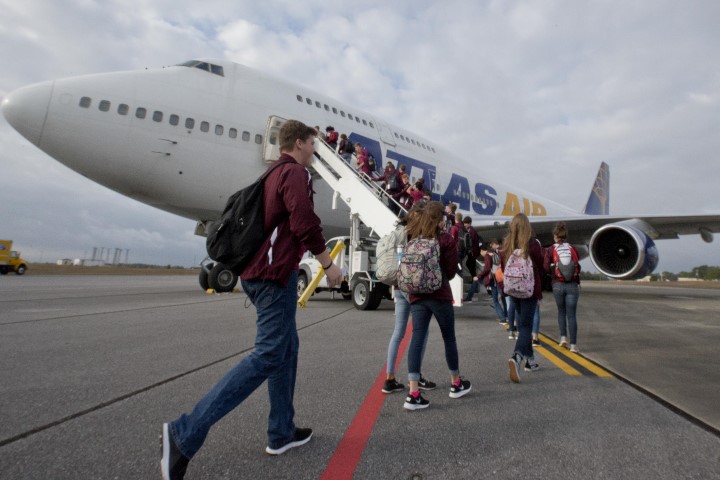Students at Staten Island’s Gaynor McCown Expeditionary Learning School learn citizenship by expeditions—to a mayor’s town hall meeting, Freshkills Park, or even abroad. Thirty-one students will travel with four teachers this month to London, Berlin, Paris, and Normandy as they learn about World War II.
Principal Tracey Frey says, “We’re creating global citizens” by leading students on expeditions where they learn by doing.
Expeditions develop life skills, Frey explains. In a foreign city, for example, students learn how to check into a hotel, navigate the public transportation system, and handle currency.
Frey herself learned by doing—working in the office of then-Mayor Ed Koch, then at the New York Public Library, the Staten Island Symphony, and the Staten Island Botanical Garden before joining the Department of Education as a teacher. She later became an assistant principal, and then principal of McCown in 2009.
“In Advanced Placement biology, students are studying the effects of opioids on cells, and will present their findings to the borough president and the district attorney on March 1,” according to Staten Island Real-Time News.
The experience of learning in the context of research, travel, and advocacy requires students to take responsibility for their learning. Responsibility is at the core of McCown’s focus on building character—specifically creativity, honesty, humor, respect, and responsibility.
“McCown graduates leave with a moral compass to make a mark and make a difference.”
As an Expeditionary Learning (EL) school, McCown is committed to a distinct pedagogy (a theory of teaching and learning) that guides its work, which in turn rests on a theory of persons. Notre Dame sociologist David Sikkink studied schools like McCown for the School Cultures and Student Formation Project at the Institute for Advanced Studies in Culture to understand how these unique schools provide their students with a moral compass. He writes in The Content of Their Character, “These were not rudderless institutions. Each had a fairly explicit understanding of student formation goals, which to a large extent were an outgrowth of an alternative vision of the educational task.”
The practices of McCown—giving responsibility to students and immersing them in the learning experiences—do indeed leave their mark and prepare them as citizens.
Expeditionary Learning was born from a collaboration between the Harvard Graduate School of Education and Outward Bound USA. EL Education offers a variety of resources to teachers and administrators, from curriculum to a path to certification as an EL school.

